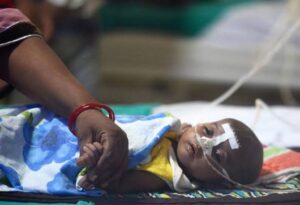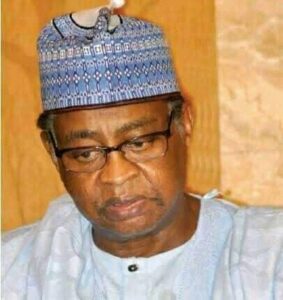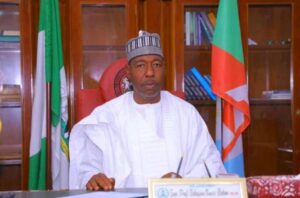
By Omar Muaz
It is an undisputable fact that the government recognizes education as the greatest investment that the nation can make to bring about rapid development of its economic, political and human resources as revised by the National Policy on Education (2005). If my memory serves me right, it was when I was a student of Adamawa State Polytechnic Yola, I apprehended that it’s one of Nigerian educational efforts to ensure equal educational opportunities for all citizens of the nation at the primary, secondary and tertiary levels, both inside and outside the formal school system as stated in the National Policy on Education. Meanwhile, the phrase “both inside and outside the formal school system” explains that there’s the need of a special educational attention to the nomads too, as citizens of the country, Nigeria.
The main gist of this short piece is to reflect in the mirror, the brief history of the development of modern education in the northern Nigeria as a threat to nomadic education; the meaning of nomadism, nomads and their education —their rights to education as citizens, programmes to be initiated for their educational successes; strategies to be adopted for their educational efficiency in comparison to the developed African nations on the facet as Algeria, Libya and Kenya; and some recommendations that have come to stay in my mind after studying the case.
The Oxford Advanced Learner’s Dictionary defines education as systematic training and instruction especially of youths in schools and colleges. Similarly, Cambridge Dictionary defines education as the process of teaching or learning, especially in a school or college, or the knowledge that one gets from home indigenously. However, in several instances, other writers and educationists perceived education as giving free scope to the development of the inherent impulses and character of the boy and girl. No matter how we look at the definitions, the important thing is that education is an important factor in the development of an individual, the society and the nation as whole as opined Yusuf A. Bala in his research about nomadic education in Nigeria.
The development of modern education in Nigeria started since 1515 when the Portuguese merchant adventurers the people of what we now know as Nigeria their first experience of education as practised in Europe as vividly dealt with in my unpublished article on girl child education in Nigeria from 1515 to 1926.
Although, the development of modern education in Northern Nigeria is what matters a lot since the percentage of the nomads in the North out-numbered those in the South. The first school opened in the Northern Nigeria was the one opened in Lokoja by the Church Missionary Society (CMS) under Bishop Ajayi Crowther in 1865. To cut the history short, it was in 1909 schools took off in Sokoto and Katsina after the unsuccessful attempts to open schools by the Christan Missionaries in Kano, Sokoto, Katsina and the other areas in the North around 1907. The fact that there were only five government/native authority primary schools in the whole north compared to fifty-nine in the south and Lagos Colony —However, by 1947, the North had overtaken the south in the number of government and native administration primary schools. There were 400 such schools in the North compared to 183 in the south. But the shortfall was made up by the number of the voluntary schools in the south which were 4,328 against a mere 543 in the north during that period—had miserably affected not only nomadic education but the northern at large.
It can be seen in the following paragraph what really is nomadism. It is conceivable to define nomadism as the mode of existence of human communities totally or partially dependent on the husbandry of one or more species of domesticated animals. Nomadism has been treated in its pure form as the negation of agriculture as having classic and atterruated forms as involving fully specialized herders, entirely devoted to the care of domesticated animals.
Sobalaje Adeyemo, Former HOD of Yoruba, K. S. C. O. E (2006 – 2008), and Tunji Folajin (ph.D) described that nomadism can be understood as; “moving livestock to seasonal grazing pasture areas is the central strategy regularly used by the nomads in many parts of the world to convert crop residues, and grasses and herbs into human food. Therefore, livestock husbandry and mobility are frequently associated, because the livestock must be fed regularly throughout the year. However, in some regions of the world where marked seasonality predominates, and where the production, harvest and storage of foder isn’t a viable option because of shortages of capital or labour, migration to exploit seasonal pastures represents the best strategy for maintaining a regular supply of food for livestock.”
Merriam-Webster Dictionary defines nomad as a member of a people who have no fixed residence but move from place to place usually seasonally and within a well-defined territory. The cattle Fulbe, known as the Bororo form the largest nomadic group across the continent of Africa, from Mauritania to Burundi. In Nigeria, they’re are about four million people and are concentrated in the Savannah region. They mark up 45 percent of the Fulbe ethnic group. The Bororo own about 95 percent of the 12 million or so heads of cattle in Nigeria. [Yusuf A. Bala, 2010]
Notwithstanding, it is high time I shortened the piece and moved to justify their [the nomads] rights to education by supporting my assertion with quotation from Federal Construction and National Policy on Education. It’s an undisputable fact that the Nigerian cattle rearers are Nigerian citizens, and therefore, are entitled to the same rights and privileges as any other Nigeria. It’s very obvious that the nomads are educationally unfavoured and so it’s against the spirit of Federal Constitution and National Policy on Education (1981) which says: “education is the birth right of every Nigerian child and should be brought close to the environment of the child.” Thus, government should give it steps to bring this infraction to halt.
Undisputably, for the success of nomadic education in this country; a proper plan must be made, perhaps programmes that’ll efficiently limit the illiteracy of the nomads. As in the earlier paragraph, government must have steps to be taken to put or bring this standing infraction—denying the nomads their right to education—to the end. The first step to be taken in this ramification is a sympathetic understanding of the nomadic way of life and the problem of nomadism. From there, a programme of encouragement, and an appropriate educational system, organized enlightenment can be embarked upon to help them develop and socialize. In this way, starting with their children, the nomads will be progressively integrated into the mainstream of the Nigerian society.
According to Ezeoma (1981), a clear understanding of nomadic way of life will help draw successful educational plans for them. Previous plans made by some state government to educate the nomad children appeared to have failed largely because they lacked this understanding.
Considering the fact that nomadic child is always is on the move along with his family, the National Policy on Education (NPE) provides for his education under his own peculiar circumstances, for it stated in the section that, “Whenever possible, arrangements will be made for such children to assist their parents in the morning and go to school in the evening. Special and adequate inducement will be provided to teachers in rural areas to make them stay on the jobs.”
To actually overcome the challenges, any programme for nomadic education must intent, content, and tools for instructions reflect the aspirations of the nomadic—Fulanis, to be successful. The programme must minimize the hardships in inherent in their mode of life, and must not be used for social or religious exploitation. It is such a programme that would inspire their confidence and acceptance (Sobalaje Adeyemo).
What’s M-learning or mobile learning ? It’s a “learning across multiple contexts, through social and content interactions, using personal electronic devices”. A form of distance education, m-learners use mobile device educational technology at their convenient time. Mobile education or mobile learning (M-learning) has been tried out successfully in many African countries. Yet, apart from the Mobile schools, there were multifacets approach consisting of the primary school boarding model that existed in Algeria, Libya and Kenya. Moreover, there should be other strategies, if the above aren’t suiting. Whichever model suits the group, nomads, should be developed for them.
In the end, what is required is sustained commitment, proper funding which I once talked about in my article “funding of education, the central plank” published in 2019, adequate materials and faultless organizations. In the voice of the educationist I couldn’t remember his name; nomadic education programme isn’t a waste of public funds. Unlike the unproductive nomads of the other lands, Nigerian nomads are economically productive and thus; they should be given education.
Omar Muaz
Faculty of Education, Ahmadu Bello University Zaria.


